Whey Protein Powder
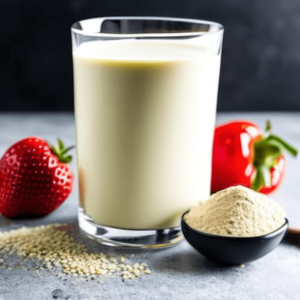
A refreshing glass of strawberry whey topped with sweet strawberries.
Is there any difference between whey protein shakes and post-workout recovery drinks?
When it comes to whey protein shakes and post-workout recovery drinks, the difference is clear. Whey protein shakes can be enjoyed any time of day to support muscle growth and recovery, but post-workout recovery drinks are specifically designed to fuel your body after an intense, hard workout.
The unique blend of proteins, carbs, and electrolytes in post-workout formulas helps you replenish energy stores, repair damaged muscles, and rebuild strength faster than a regular whey protein shake.
Whey proteins vary in terms of quality – look for grass-fed whey or organic whey for higher quality nutrition with added nutrients like vitamins and minerals!
Ultimately your choice should depend on your needs – whether it’s weight loss or lean muscle gain.
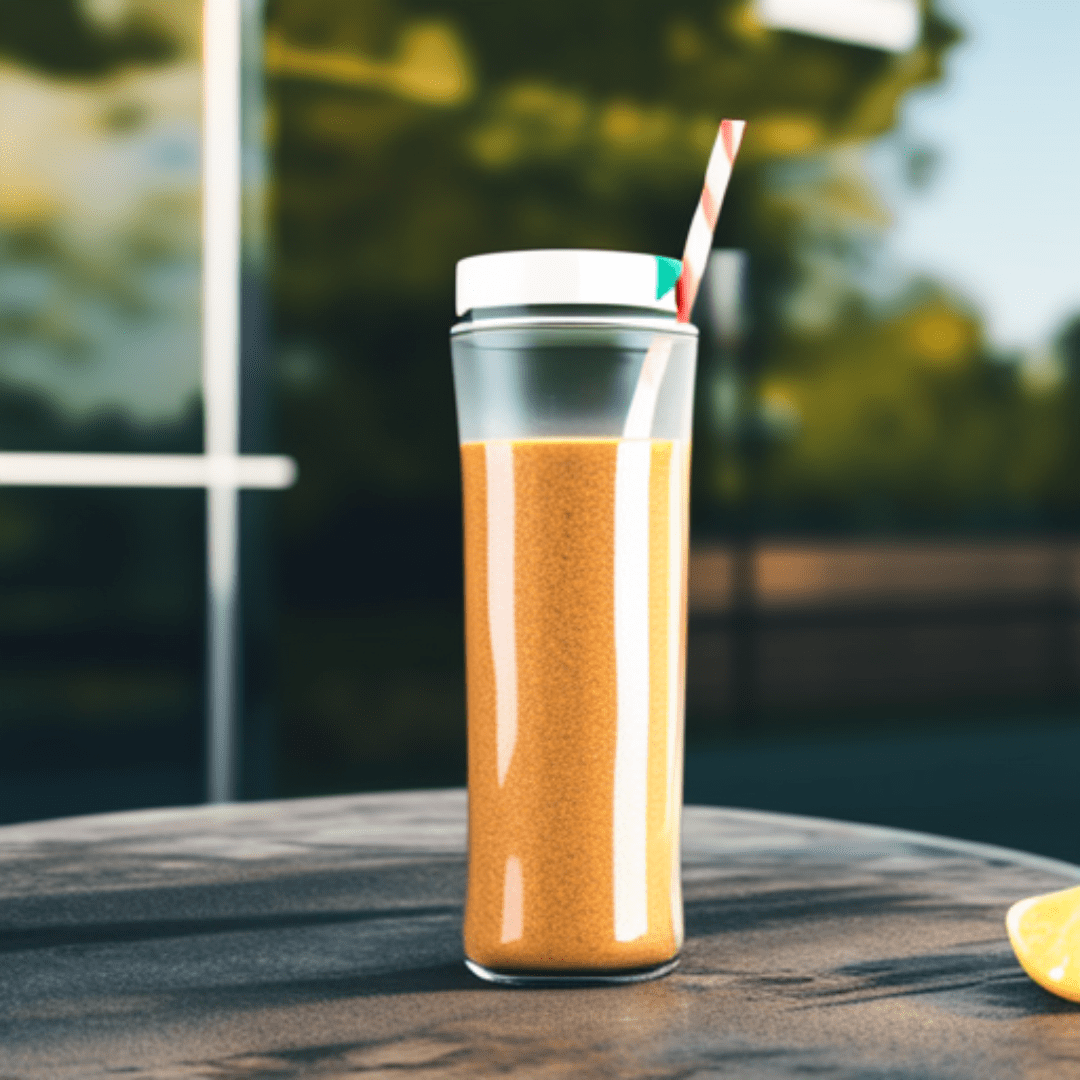
What is the difference between whey protein and other dietary supplements like creatine and glutamine?
Whey Protein is a form of protein derived from cow’s milk and has long been considered an essential element of a balanced diet.
While it shares similarities with other dietary supplements like creatine and glutamine in some aspects, such as its ability to support muscle growth and recovery, whey protein stands apart from the rest due to its unique nutritional composition.
Whey consists of amino acids, including branched-chain amino acids (BCAAs) which aid muscle building and loss prevention. Additionally, whey contains vitamins and minerals which have functions beyond basic nutrition–including electrolyte balance regulation.
Finally, when opting for grass-fed cows’ whey products you also benefit from key Omega-3 fatty acids that can improve joint health as well as enhance cognitive performance.
In essence, while complementing the effects of other dietary supplements during workouts or meal replacement shakes used by athletes or bodybuilders alike, whey boasts specific features that make it an indispensable nutrient choice for one’s daily routine.

Is it possible for me to take too much whey protein and what are the signs of overconsumption?
The human body is an astonishing machine, but it can be burdened by too much of a good thing. That includes whey protein, which is derived from cow’s milk and contains essential amino acids as well as lactose, vitamins, and minerals—and can act as an appetite suppressant.
Yes indeed, one can take more whey than they should; signs of overconsumption include headaches, nausea, and digestive issues. But how much is too much? That varies greatly depending on the individual’s size and weight training goals.
When consumed in moderation to meet your body’s protein needs (which vary from person to person), whey protein powder can accelerate muscle growth and aid with speedy recovery after strenuous workouts–allowing you to reach your fitness aspirations faster!
The key lies in striking the right balance for you with supplements like grass-fed whey or soy-based vegan proteins that are free from artificial sweeteners and flavors so you know exactly what goes into each serving of your supplement shake or meal replacement snack each day.
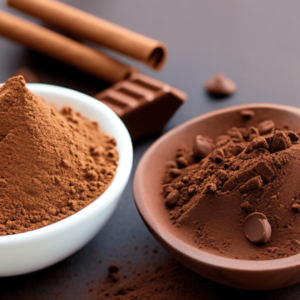
Are there any potential health benefits associated with consuming whey protein?
Make no mistake: this powerful form of protein is among the most effective building blocks for health and performance that you will find today.
As it turns out, whey protein packs a powerful punch when it comes to providing essential proteins and amino acids vital for building muscle, aiding in weight loss efforts, and providing energy-enhancing benefits to athletes and weekend warriors alike.
Whey protein also contains valuable trace minerals such as iron, magnesium, calcium, and zinc that are necessary for good health – all in a convenient powder form that can easily be added to shakes or baked into your favorite recipes.
And with whey isolates free of fat and lactose boasting more than 90% pure protein per serving size (compared to around 10-50% found in conventional forms), what’s not to love?
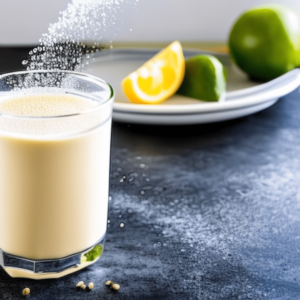
What’s the best way to ensure that I’m getting all the essential amino acids my body needs from whey protein?
The secret to ensuring your body is getting all the essential amino acids it needs from whey protein is to choose quality products with a complete amino acid profile.
This means you should be looking for ingredients like hydrolyzed whey protein, grass-fed cows’ milk, or organic whey that have been tested by reputable brands to make sure they comply with industry standards.
Additionally, opt for transparent labels that list all of the ingredients in each product clearly and accurately.
With careful selection of these high-quality products – backed up by solid research into their production methods – you can rest assured that your body will have access to just the right amount and type of essential amino acids it needs for optimal muscle growth and recovery.
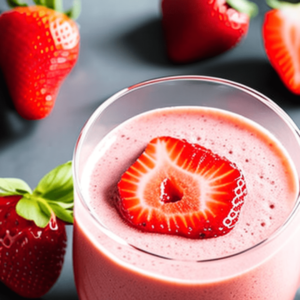
Are there any special considerations I should take into account when selecting a whey protein powder?
When it comes to choosing a whey protein powder, you’ll want to consider more than just the taste. Not all proteins are created equal! Look for products with high-quality ingredients and limited amounts of artificial sweeteners, fats, and lactose.
And if you’re looking for something that packs an extra health punch, consider opting for organic whey or grass-fed whey proteins with certified transparency – you’ll know exactly what’s in your product as well as where it came from.
Moreover, look at the amounts of amino acids such as branched-chain amino acids (BCAAs) and essential amino acids (EAAs).
Finally, think about how much protein per serving you need to reach your goals – whether it’s muscle building or weight loss – depending on your individual diet preferences and lifestyle.
With so many options out there, selecting a quality whey protein can be overwhelming – but don’t forget: when done right, this dietary supplement can make all the difference.
How does whey protein compare to other sources of dietary proteins such as casein or egg albumin?
WP stands out from other dietary proteins like casein and egg albumin thanks to its unique composition.
It’s a complete protein containing all nine essential amino acids, is quickly digested by the body for optimal muscle recovery and growth, has greater bioavailability than other forms of protein, requires no artificial sweeteners or flavors, and can be derived from organically-grown grass-fed cows.
When it comes to building lean muscle mass while avoiding unnecessary additives in your diet – whey is certainly king!
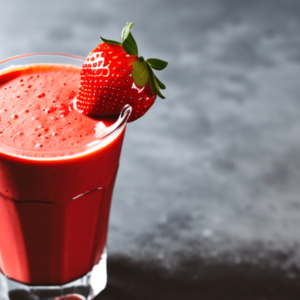
Are there any natural alternatives to whey protein that can provide similar benefits?
For those who have dietary restrictions or are on the hunt for natural alternatives, finding an equally robust yet healthy alternative can be quite a challenge.
Fortunately, there is an array of plant-based proteins such as pea protein and vegan proteins like hemp or rice that offer similar if not better efficacy than whey while still maintaining their all-natural origin.
With many certified organic products now available in the market, you can enjoy all the essential nutrients to fuel your body without sacrificing quality or taste!
From grass-fed whey to unflavored vanilla protein powder shake mixes – there’s something out there for everyone’s needs; it just takes some exploring and persistence to find the perfect blend for you. So don’t fret – delicious sources of good health do exist!
With so many choices available nowadays for both vegan and non-vegan options when it comes to natural sources of protein supplements – explore what’s out there and make sure you get optimal intake from every scoopful!
What are the differences between whey protein powder and a protein blend?
When it comes to protein powders, there is a vast disparity between the quality of whey proteins and blends. Whey is derived from dairy sources and is composed of high-quality branched-chain amino acids, making them ideal for muscle growth and recovery.
Protein blends, on the other hand, may contain lower-quality ingredients like soy or pea protein. Additionally, you could be sacrificing essential vitamins and minerals when opting for a blend over a pure whey protein powder.
While premium protein brands use certified organic ingredients in their products to ensure top-notch quality control, these added benefits will come at an increased price tag compared to many generic store brands.
Ultimately you need to choose the best option that suits your individual fitness goals—whether it is building lean muscle mass or aiding in weight loss—and partner it with an appropriate diet and workout regimen to get maximum results.
Is it possible to get the same benefits from consuming plant-based proteins such as soy, hemp, or pea?
Indeed, an array of plant-based proteins – made from soy, hemp, or pea – can provide many of the nutritive benefits that come from dairy or fish-based proteins.
Whether you’re a bodybuilder needing to build muscle for competition; an athlete striving for peak performance; a fitness enthusiast looking to lose weight; or a health-conscious individual seeking general health maintenance – plant-based proteins can provide essential amino acids and all the other nutrients needed to supplement your diet and reach your fitness goals.
It’s no wonder they’ve become such popular alternatives! Of course, it is important to research various brands and products on the market today to make sure you are consuming quality ingredients with transparency – something not always guaranteed in this ever-changing marketplace.
With careful consideration given as to what protein source suits one’s needs best, there is no doubt that vegans everywhere now have options when it comes to adding dietary protein as part of their health regimen.
Are there any special storage instructions to be aware of when buying whey protein powder?
When seeking out the finest whey protein powder, it’s important to consider the storage instructions.
Keeping your whey protein powder in a dark and cool area helps maintain the integrity of its many ingredients. Temperature fluctuations can damage the quality of your product, so be mindful when storing it for long-term use.
High humidity levels may cause spoilage or mold buildup, rendering it unfit for consumption. To ensure you’re getting only top-notch quality nutrition from your protein powder purchase, pay close attention to all special storage instructions – or risk not reaping any benefit from it at all.
Does it matter which time of the day I consume my whey protein?
The moment at which you consume your whey protein is of immense importance, as the right time can help accelerate muscle recovery and growth.
Whey protein is an excellent source of essential amino acids, which helps serve as the building blocks for muscle development. Thus, when taken directly after a workout your body will be able to use these amino acids efficiently for optimal results.
Ingesting whey protein before bed also has its benefits in that it provides the body with continued nourishment during its rest period, allowing it to recover and rebuild at a faster rate than normal.
As such, taking whey protein any time you believe your muscles need sustenance – either post-workout or before sleep – can help significantly in building lean muscle mass and achieving your fitness goals.
Is it necessary to cycle my intake of whey protein or can I safely use it daily without any adverse effects?
It is certainly possible to take whey protein daily without adverse effects. The healthy proteins and amino acids contained in grass-fed whey can provide great benefits for athletes and workout enthusiasts by building muscle, boosting metabolism, and aiding recovery.
Furthermore, with its high-quality ingredients, you don’t have to worry about the potential negative consequences of consuming artificial sweeteners or other unnatural ingredients usually found in lesser-quality brands.
With so many delicious flavors of whey protein powder on offer–including options like chocolate peanut butter, vanilla, and unflavored varieties–it’s easy to make a wise choice as you embark upon your fitness journey.
So go ahead: confidently glorify yourself with a daily scoop (or two!) of this life-enhancing supplement.
What are the different types of whey protein that I can choose from such as concentrate, isolate, and hydrolysate?
Well, it all depends on your needs. For muscle building and recovery, a combination of concentrate, isolate, and hydrolysate will do you well.
The concentrate is the most popular choice due to its low price and high nutrient content.
Isolate is quickly digested for fast absorption with more protein per scoop for fewer calories.
And then there’s hydrolysate – perfect for those looking for ultra-fast absorption to promote muscle growth and repair more efficiently post-workout.
No matter which you choose, rest assured that when it comes to whey proteins, it IS indeed worth shopping around from various brands as ingredient quality can differ greatly.
What is the ideal timing for taking a post-workout shake?
After a grueling workout, nothing is more important than replenishing your body with the essential nutrients it needs to recover and promote muscle growth.
Taking a post-workout shake, such as one high in quality whey protein like Myprotein Impact Whey or Optimum Nutrition Gold Standard Whey, will help to boost your energy and aid in muscle recovery.
The optimal time for taking this shake is within 30 minutes of finishing your workout as this will ensure that your body gets the necessary proteins and amino acids that are essential for muscle growth, improved strength, and endurance.
A scoop of whey protein powder can provide up to 25g of the highest quality proteins per serving, enabling you to build lean muscle mass quickly and efficiently.
Is it beneficial to consume a post-workout shake containing whey protein?
Whey protein is arguably the most beneficial type of protein for post-workout recovery. This form of protein, particularly whey isolate and whey concentrate powders, is easily absorbed by the body to help repair muscle tissue and rebuild lost energy stores quicker than regular food can provide.
Whether you’re an athlete or a weekend warrior, it pays off to invest in quality whey proteins – with only the finest grass-fed cows providing the purest and complete source of amino acidic profile for maximum muscle synthesis.
Every scoop delivers clean fuel for rebuilding your muscles after a hard workout; so if you’re looking to lose weight, build mass and boost your fitness levels through increased strength and endurance – then it makes sense to choose whey.
Is it possible to get the same benefits from consuming natural sources of protein such as eggs, lean meats, and dairy products?
Achievement of your fitness goals is intensely interrelated to the quality and quantity of protein that you’re putting into your body.
Natural sources like eggs, lean meats, and dairy products contain high-grade proteins for lean muscle growth and recovery.
To best ensure you are getting all of the essential amino acids you need in a day, I’d say supplementing with whey protein powders is key for ensuring maximum health benefits.
While the market is saturated with different types of proteins, lactose-intolerant individuals can find great options from plant-based proteins such as pea or soy too – just make sure they have an adequate amino acid profile that’s certified organic!
The array of flavors on offer makes it easy to keep up with your daily protein intake without having to resort to artificial sweeteners or unhealthy fats, so don’t worry if you don’t always have time for a meal; when finding the right whey protein powder for you be sure to compare ingredients lists and even check out independent lab tests if available before making a decision – after all; there’s no better brand endorser than yourself.
What price range should I consider when shopping around for the best value in terms of quality vs. cost efficiency?
When it comes to whey proteins and other protein-based supplements, there is an array of options in terms of quality and cost efficiency. From the Garden of Life to Gold Standard Whey to Transparent Labs, the range is broad.
The key is to find a product that offers the best bang for your buck. Consider what matters most – ingredients, % whey or protein per serving, amino acid profile, and overall nutrition content – then compare for price against other top brands on the market.
Ultimately you’ll want a quality product that fits within your budget without sacrificing essential elements of healthful nutrition or overall effectiveness.
Is it better to opt for an unflavored version or one with added flavors like vanilla, chocolate, or strawberry?
For protein powders, the choice between unflavored or flavors like vanilla, chocolate, and strawberry is a personal one. It all depends on what type of taste you prefer and how creative you want to be with your diet.
While flavored versions of whey protein add convenience for those looking for a quick shake fix after a workout, many opt for unflavored versions to experiment with various recipes or incorporate their powder into their favorite dishes.
However, no matter which option you choose – flavorless or flavored – all proteins should deliver quality ingredients with an excellent amino acid profile and at least 20 grams of protein per serving.
Ultimately it comes down to your preference when choosing the best whey protein that fits your lifestyle.
Are there any vegan-friendly options available on the market that provide a similar benefit to traditional whey proteins?
Yes, there are plenty of vegan-friendly options on the market that offer similar benefits to traditional whey proteins.
For starters, vegan-friendly protein powders come in a variety of plant-based sources such as pea and hemp.
These plant proteins offer all nine essential amino acids that your body needs for building muscle and can even help with weight loss and recovery from workouts.
Plus, many of these protein products are coming fortified with vitamins and minerals for added nutritional benefits.
So if you want to achieve optimal wellness goals without compromising taste or quality, vegan-friendly protein powders are worth considering!
Does whey protein contain gluten or lactose, and if so which brands are free from these ingredients?
The simple answer is yes, whey protein does contain gluten or lactose; however, there are some brands selling whey proteins that are free from these ingredients.
With a plethora of options at your fingertips, it can be hard to discern which brand offers the best quality and most reliable source of protein.
Fortunately, brands like Optimum Nutrition Gold Standard Whey, Transparent Labs Whey Protein Isolate, Naked Whey Protein Concentrate, and Garden of Life Organic Grass Fed Whey all provide a high-quality product absent of these two ingredients whilst also delivering enhanced muscle recovery and building benefits.
These choices may indeed be pricier than other options available on the market but the sheer level of nutrition delivered will more than makeup for this small additional expense – so don’t be fooled by bargain brands.
Should I combine different types of proteins in my diet such as casein and plant-based proteins?
When it comes to maintaining a healthy and balanced diet, many people ponder the use of different types of proteins.
Combining both casein and plant-based proteins, like whey isolates or pea protein, into one’s daily routine is a wise decision indeed. By combining these two different sources you will be able to reap the full benefits from each type of protein; allowing for muscle growth and repair as well as weight loss and improved overall health.
Not only can this combination provide an increase in essential amino acids necessary for your body’s functions, but also vitamins and minerals that are not commonly found in animal sources such as whey concentrate or grass-fed cows.
Therefore if you’re looking to up the quality of your protein intake while getting all the fantastic nutrients it provides then combining casein with a plant-based option is something you should consider.
Are there any potential side effects of taking too much whey protein?
Too much of anything can indeed be cause for concern, and whey protein is no different.
People are turning to whey protein supplements in droves, as more and more recognize the potential benefits it offers.
But if you’re not careful regulating your intake, you may find yourself facing some unwelcome side effects.
Taking too much whey protein can lead to digestive issues such as nausea and stomach cramps, a decrease in appetite, headaches, and even kidney stones.
So while enjoying the power of this potent supplement can yield tremendous gains for your bodybuilding or sports performance goals, care must be taken that you keep within the recommended amounts of protein intake – particularly when enjoying a whey protein isolate or hydrolyzed whey concentrate- if these serious symptoms are to be avoided.
How much whey protein should I take daily to build muscle?
Generally speaking, most people will take 1-2 scoops (or about 20-40g) of whey protein once per day after their workout for optimal results in terms of building muscles quickly and safely.
Regardless if you choose a concentrate or isolated form of whey protein powder, make sure your selection includes at least 20 grams of quality pure whey per serving with no added sugar or fillers.
Is whey protein good for building muscle?
Why, yes indeed! Whey protein has long been heralded as one of the best forms of protein for building muscle and optimizing health. With its high biological value, whey contains all the essential amino acids that aid in muscle recovery and promote lean muscle growth.
Its rich content of branched-chain amino acids fuels more efficient energy during workouts while helping to reduce fatigue afterward.
Or perhaps you prefer a plant-based option? No worries there – vegan and organic alternatives are available to utilize as well!
What is the best whey protein powder for men?
For the strong and ambitious man, there is no doubt that whey protein powder holds a special place of importance in supporting an active lifestyle. Without it, muscle building, maintaining lean body weight, and performing at peak levels can prove impossible tasks.
Whether you’re new to fitness or have plenty of experience in the gym, finding the best whey protein supplement for men is key for fueling your system with the necessary nutrition for achieving real results.
The search requires careful consideration- from dairy-free plant proteins to organic grass-fed varieties; different people will require different ingredients to meet their needs and also suit their taste buds.
So if you’re looking for superior quality whey proteins with essential vitamins, minerals, and amino acids – as well as certified organic options with none of those pesky artificial sweeteners or flavors – then your search may just be over…it’s time to make your choice!
Are there any potential drawbacks associated with consuming too much whey protein such as increased weight gain or digestive problems?
Over-consumption of whey protein can have drawbacks that one should be aware of before indulging too heavily in this supplement.
It could lead to an increase in body weight due to increased calorie intake, as well as digestive problems such as bloating, gas, and nausea due to lactose intolerance or intolerance to the other ingredients found in certain brands.
Ultimately it is up to you to regulate your consumption so that it remains beneficial rather than detrimental – a little bit of knowledge goes a long way!
Does consuming carbs before working out combined with using whey protein have an – advantage in gaining more lean muscles compared to just consuming it alone?
The combination of carbs and whey protein, when consumed before a workout, is an optimal choice for those seeking to gain lean muscle mass.
The carbohydrate stimulates the body’s energy systems during the workout while consuming whey protein afterward can help ensure that the muscles are fueled with quality amino acids and other essential nutrients.
As such, this beneficial pairing provides an advantage in helping to improve lean muscle gains over just taking whey alone.
What type of workouts should be done in tandem with drinking whey protein Powder to maximize gains in muscle mass?
For those looking to maximize gains in muscle mass, drinking whey protein powder should be done in tandem with strength training exercises.
By combining the grass-fed whey protein concentrate, whey isolate, or a combination of both with heavy weightlifting workouts such as squats and deadlifts, athletes can expect better results than if they use either workout or supplement alone.
The quality proteins found in the powder help fuel muscles during intense exercise while promoting recovery afterward. This will help build lean muscle mass faster and more effectively than without it.
Should I still do cardio when taking a regular dose of whey protein powder to build muscles?
Indeed, cardiovascular exercise remains essential when one takes a regular dose of whey protein powder.
Adding this supplement to your fitness regimen can significantly contribute to building muscle mass, yet its effectiveness is heightened when combined with cardio and strength training.
As the whey protein powder contains essential amino acids that promote muscle growth, engaging in aerobic activities will further speed up the process of strengthening and toning your body.
Thus, by including both whey protein supplements as well as cardio into your routine, you will be sure to be on the path toward achieving maximal gains in terms of health and wellness.
Does taking too much whey protein cause health problems?
It’s a dilemma that strikes fear into the hearts of conscious bodybuilders and athletes striving to build lean muscle mass.
Consuming an excessive amount of whey protein, especially from low-quality products filled with artificial sweeteners, can lead to digestive difficulties including bloating, gas, and abdominal discomfort.
In some cases, it may even cause one to retain water and pile on extra fat — not what we’re trying for here! That is why one must be selective when choosing their whey protein supplement; opting for grass-fed varieties with quality ingredients, minimal sugar content, and rich amino acid profiles is always the prudent choice.
As Hippocrates himself said: ‘Let thy food be thy medicine.’ Indeed wise words!
Which is better for gaining muscles, soy or whey proteins?
Whey proteins reign supreme when it comes to gaining muscle.
As the quintessential form of protein, whey is one of a kind in terms of its ability to help build lean muscle mass, enhance muscle recovery and stimulate protein synthesis – all essential elements for a successful workout regimen.
In comparison, soy proteins are not as effective in helping your muscles recover after an intense session at the gym. Not only that, but many people avoid soy due to its negative side effects such as digestive issues, hormone dysfunction, and nutritional deficiency.
Therefore, if you want the absolute best for your bodybuilding goals then look no further than quality whey protein.
With its arrays of beneficial nutrients like a complete amino acid profile and branched-chain amino acids (BCAA’s), whey provides powerful support during intensive training sessions so you can take care of your muscles like never before.
Are there any side effects associated with taking whey protein powder regularly?
Taking whey protein powder regularly may have some side effects for people who are particularly sensitive to dairy, as it is derived from milk.
Even those without sensitivity to lactose can experience bloating, gas, or stomach cramps due to their bodies not being used to the increased intake of proteins.
People with kidney and liver issues should also consult a doctor before taking whey protein supplements since proteins increase the body’s metabolic rate.
But overall, if taken in moderation, whey protein powders can become an important part of any health-conscious person’s lifestyle and provide many benefits such as supporting muscle growth and recovery as well as weight loss efforts.
Those who choose wisely in terms of quality ingredients, flavors, and sources (such as grass-fed cows), then they can be assured that they are investing in a reliable product that will help them reach their goals.
What are the benefits of taking whey protein powder to gain muscle?
Whey protein powder is an ideal supplement for those looking to gain muscle mass, thanks to its high-quality proteins and essential amino acids.
It helps to increase lean muscle by providing the building blocks your body needs while also enhancing muscle recovery and accelerating the process of protein synthesis.
The rich nutritional profile of whey proteins also contains minimal fat and carbohydrates compared with other proteins, making it a great choice for weight loss as well as muscle gain.
Furthermore, many whey protein powders are fortified with vitamins and minerals that work together to provide numerous health benefits when consumed regularly.
How much whey protein should I take per day to build muscle?
For those seeking to build muscle, it is recommended that you should consume 1-2 grams of whey protein per kilogram of body weight daily.
The quality of the source is also important — be sure to choose a grass-fed, organic source containing all the essential amino acids and vitamins for optimal health benefits!
With these exquisite proteins in your diet, you can enjoy the power of powerful muscle growth and maintenance with each delicious sip!
Is there a difference between whey and plant-based protein powders?
Yes, whey protein is derived from dairy and plant-based proteins are made from sources like peas, rice, and nuts.
To start with, whey is derived from cow’s milk and is considered the gold standard in terms of quality. It contains all nine essential amino acids and has an excellent amino acid profile which makes it great for sports nutrition.
Meanwhile, plant-based proteins are derived from sources such as peas, soybeans, or rice. They can be good alternatives for those looking for a vegan-friendly option but tend to have lower amounts of essential amino acids than their whey counterparts.
Ultimately the choice comes down to each individual’s dietary needs and preferences—whey protein powder may be preferred by athletes or bodybuilders who need additional protein for muscle development while plant-based proteins could be better suited for people with lactose sensitivities or if they’re looking to reduce fat intake.
In any case, you must always pay attention to what’s in your product: ingredients list verification is key!
What is the best type of whey protein powder for building muscle?
Grass-fed whey isolate protein powder is the best type of whey protein powder for building muscle. It has a higher concentration of essential amino acids and branched-chain amino acids. It is also lactose-free and low in fat, making it ideal for those on a weight-loss diet.
The best whey protein powder for building muscle can be a tricky choice to make, with so many brands and products on the market. But if you’re looking for a quality product that will give you maximum results in minimum time, then Optimum Nutrition Gold Standard Whey Protein Isolate is the one I’d recommend.
This whey protein powder features premium ingredients like 24g of pure whey isolate per serving and 28g of amino acids to promote muscle growth and recovery. Plus, it’s sweetened naturally without artificial flavors or preservatives.